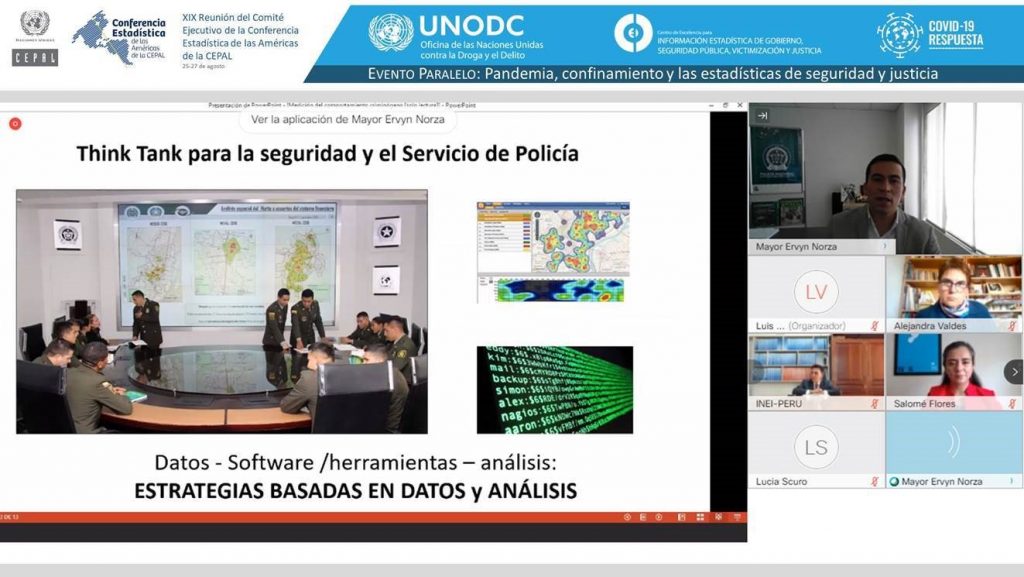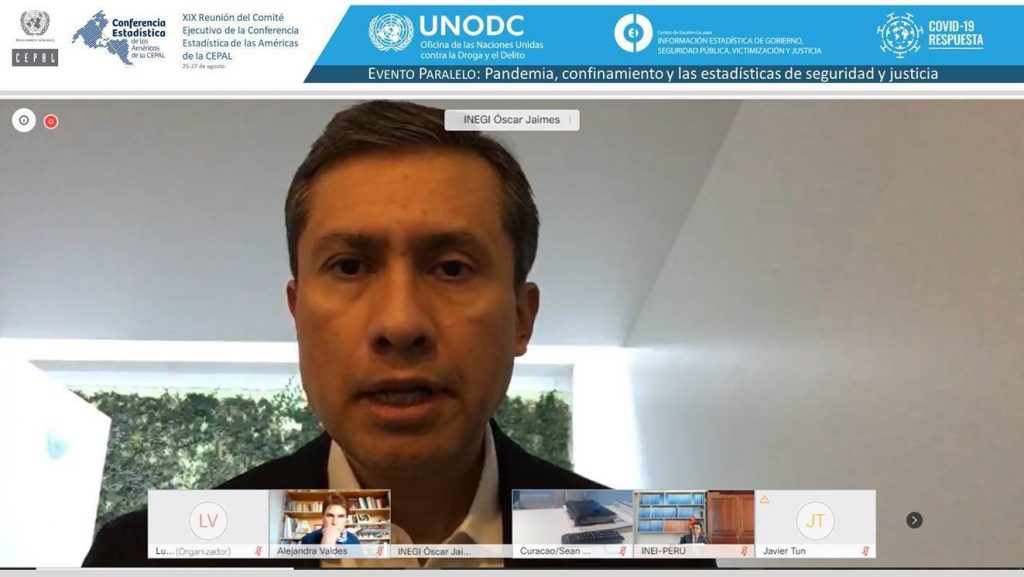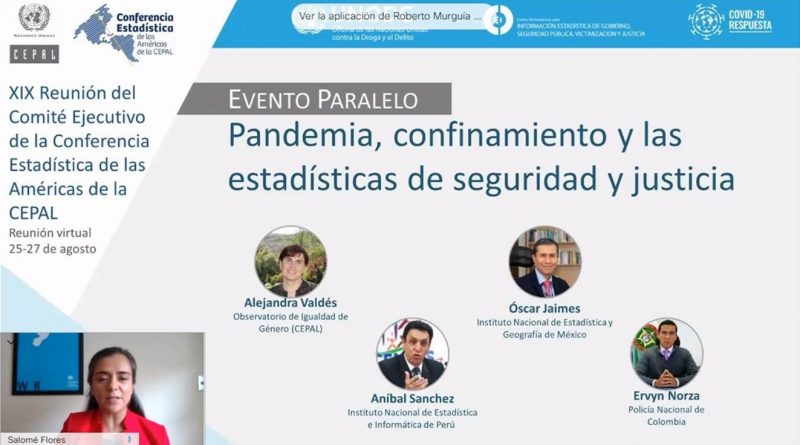Pandemic, Lockdown, and Security and Justice Statistics
Mexico City – In the wake of the COVID-19 pandemic, several countries in Latin America and the Caribbean have become critical areas for the rapid spread of the virus. In response to this emergency, governments in the region have issued mobility restrictions, social distancing guidelines and lockdown orders since late March 2020.
These measures have had a differentiated impact on crime trends: on the one hand, the commission of crimes has been altered by changes in social dynamics; but on the other hand, the ability of authorities to measure and monitor these changes has also been disrupted.
In order to discuss the impact of the pandemic on the main crime and criminal justice indicators in the region, the Center of Excellence in Statistical Information on Government, Crime, Victimization and Justice UNODC-INEGI organized a virtual side event at the XIX Meeting of the Executive Committee of the Statistical Conference of the Americas (SCA). This annual meeting, coordinated by the Statistics Division of the Economic Commission for Latin America and the Caribbean (ECLAC), brings together the region’s national statistics offices. Its members make decisions aimed at advancing statistical policies and activities, and promoting international, regional and bilateral cooperation among its members.
This side event had an inter-institutional vision, deepening the measurement and analysis capacity of the police, the health system and the National Statistical Offices in view of the extraordinary situation caused by the COVID-19 with a gender perspective.
On behalf of Mexico, Mr. Oscar Jaimes of the National Institute of Statistics and Geography highlighted how “the context of the pandemic has provided an opportunity to consider the integration of non-traditional sources such as video surveillance cameras, emergency calls and firearms registration to complement security analysis”. This information complements the country’s efforts to measure crime already being carried out through the various surveys and censuses that are regularly conducted in Mexico.
In his intervention, Mr. Aníbal Sanchez of the National Institute of Statistics and Information of Peru related how “even with the existing limitations, information has been generated and the way of working has had to be adapted”. These efforts have made it possible to integrate the analysis of the perception of insecurity and the prevalence of crime under the perspective of the impact of COVID-19 and the number of infections at the national level.
For his part, Major Ervyn Norza of the Colombian National Police gave an account of the efforts being promoted by public security institutions to address the health emergency with evidence-based decisions, strengthening data collection. However, he commented that “half of the effort is in integrating the data, but the other half is in the capacity to analyze it for decision making”.
Finally, Ms. Alejandra Valdés of ECLAC’s Gender Equality Observatory recalled the importance of conducting a differentiated analysis that recognizes the situation of vulnerability faced by women in the context of lockdowns. Presenting data from different countries in the region, she stressed that femicides decreased in the months of confinement, compared to the data from the previous year. But as a counterpart, she observed an alarming behavior in the recording of emergency calls, since in some cases more situations are reported at the national level, and in others it is questioned whether the decrease in calls can be associated with a real decrease in events.
The event closed with a reflection on the prospects and opportunities for this information collection in the future, where the collection and timely dissemination of data, as well as inter-agency coordination and integration with alternative sources will allow better decisions to be made for addressing the consequences of the pandemic.
For more information, please contact:
Roberto Murguía
Links of interest:
https://www.cepal.org/es/organos-subsidiarios/conferencia-estadistica-americas





